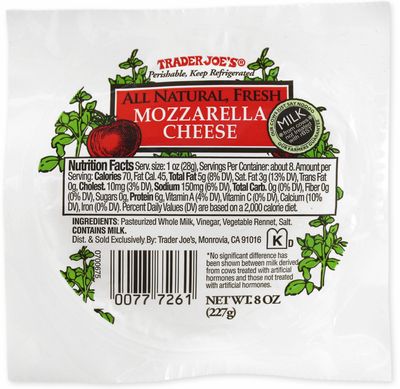Home
The Soul of All Natural Things [LP]
Barnes and Noble
The Soul of All Natural Things [LP]
Current price: $22.99
![The Soul of All Natural Things [LP]](https://prodimage.images-bn.com/pimages/0656605611914_p0_v3_s600x595.jpg)
![The Soul of All Natural Things [LP]](https://prodimage.images-bn.com/pimages/0656605611914_p0_v3_s600x595.jpg)
Barnes and Noble
The Soul of All Natural Things [LP]
Current price: $22.99
Size: OS
Loading Inventory...
*Product information may vary - to confirm product availability, pricing, shipping and return information please contact Barnes and Noble
Forty-four years is a long time between albums, but for singer/songwriter
Linda Perhacs
it has been exactly that.
The Soul of All Natural Things
is her sophomore recording. Her first, the 1970 psych-folk masterpiece
Parallelograms
, has a storied history (see her bio if you need it recounted). In its own way, this set picks up where her hallucinatory classic left off. Her collaborators are a younger generation of L.A. musicians.
Perhacs
wrote all the lyrics, several melodies, and co-produced with
Chris Price
and
Fernando Perdomo
, who also perform.
Julia Holter
Nite Jewel
's
Ramona Gonzalez
assist with vocals, keyboards, and arrangements. The sound is modern yet keeps
' essential musical nature at the fore. Her voice at 70 is a bit thinner than the throaty mezzo-soprano she displayed at 27, but serves the material unconditionally. The title track commences with her careful vocal phrasing, fingerpicked guitar, subtle strings, and near plainchant backing voices. Then the bridge erupts with flamenco handclaps and guitars before the quieter melody returns, somehow changed as a result. On "River of God,"
Gonzalez
's backing vocals recall the kind of multi-tracked effect
' own did on
. The weave of nylon-stringed and electric guitars, rolling tom-toms, droning organ, and hand percussion frame their voices, rippling from the center. "Daybreak" has an earthier jazz vibe and her warm delivery is elegant and understated. "Intensity" is likely a
Holter
arrangement with its skittering electronic loops, synched rhythms, and elaborate vocal chart. The waltz "Prisms of Glass" begins with an electric piano, a synthetic drone, reverb, and
' delicate, deliberate vocal. The backing chorus is delivered in staggered rounds as edgy synths and chimes hover over the center and a kick drum thunders in from the margin. "Immunity" is dreamy yet urgent pop (not unlike
Lindsay Buckingham
's), with a jazzy twist in the scat-sung refrain. A breezy interplay between layered guitars and funky rhythms surrounds the women's voices. "Song of the Planets" is a cosmic church hymn.
' prayer for the universe is illumined with a backmasked angelic chorale, tremulous keyboards, and electronically treated strings, with
Price
delivering a spoken word interlude (which works, surprisingly). It's spacy yet bright and fluid.
does stand on its own in terms of quality, but is unmistakably an extension of the sonic, spiritual continuum
' began -- and probably thought she left -- on
. Her uncommon, even singular approach to singing, recording, and writing, remains fully in evidence here. [An LP version was also released.] ~ Thom Jurek
Linda Perhacs
it has been exactly that.
The Soul of All Natural Things
is her sophomore recording. Her first, the 1970 psych-folk masterpiece
Parallelograms
, has a storied history (see her bio if you need it recounted). In its own way, this set picks up where her hallucinatory classic left off. Her collaborators are a younger generation of L.A. musicians.
Perhacs
wrote all the lyrics, several melodies, and co-produced with
Chris Price
and
Fernando Perdomo
, who also perform.
Julia Holter
Nite Jewel
's
Ramona Gonzalez
assist with vocals, keyboards, and arrangements. The sound is modern yet keeps
' essential musical nature at the fore. Her voice at 70 is a bit thinner than the throaty mezzo-soprano she displayed at 27, but serves the material unconditionally. The title track commences with her careful vocal phrasing, fingerpicked guitar, subtle strings, and near plainchant backing voices. Then the bridge erupts with flamenco handclaps and guitars before the quieter melody returns, somehow changed as a result. On "River of God,"
Gonzalez
's backing vocals recall the kind of multi-tracked effect
' own did on
. The weave of nylon-stringed and electric guitars, rolling tom-toms, droning organ, and hand percussion frame their voices, rippling from the center. "Daybreak" has an earthier jazz vibe and her warm delivery is elegant and understated. "Intensity" is likely a
Holter
arrangement with its skittering electronic loops, synched rhythms, and elaborate vocal chart. The waltz "Prisms of Glass" begins with an electric piano, a synthetic drone, reverb, and
' delicate, deliberate vocal. The backing chorus is delivered in staggered rounds as edgy synths and chimes hover over the center and a kick drum thunders in from the margin. "Immunity" is dreamy yet urgent pop (not unlike
Lindsay Buckingham
's), with a jazzy twist in the scat-sung refrain. A breezy interplay between layered guitars and funky rhythms surrounds the women's voices. "Song of the Planets" is a cosmic church hymn.
' prayer for the universe is illumined with a backmasked angelic chorale, tremulous keyboards, and electronically treated strings, with
Price
delivering a spoken word interlude (which works, surprisingly). It's spacy yet bright and fluid.
does stand on its own in terms of quality, but is unmistakably an extension of the sonic, spiritual continuum
' began -- and probably thought she left -- on
. Her uncommon, even singular approach to singing, recording, and writing, remains fully in evidence here. [An LP version was also released.] ~ Thom Jurek


















